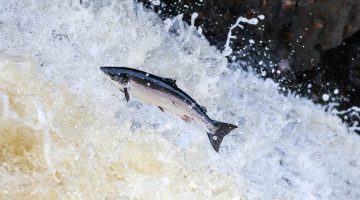Public News Service reports on UMaine Arctic charr research
The Public News Service reported that researchers at the University of Maine are studying the feeding habits of Arctic charr to help predict how other fish species could adapt to a warming climate. Michael Kinnison, director of the Maine Center for Genetics and the Environment at the University of Maine, said the research will inform […]
Read more

